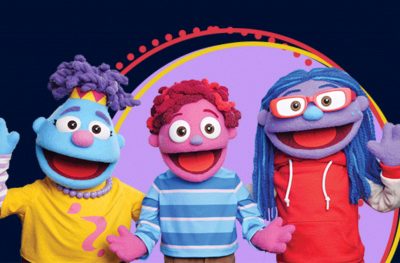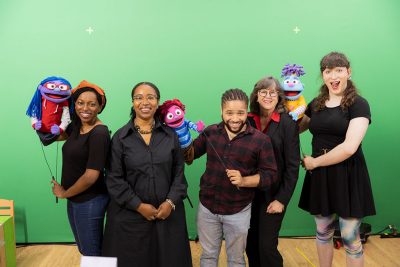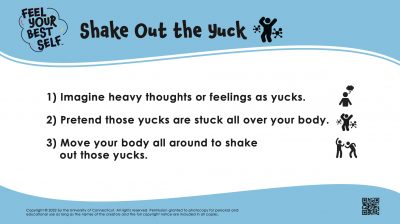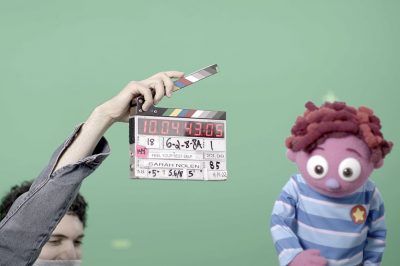
Enduring the turmoil of a global pandemic for more than two years now, many of us have struggled. We can recognize the importance of self-care and wellness, but not everyone has necessarily adopted a daily meditation practice or quit their late-night doomscrolling. By now, though, perhaps we can admit to ourselves one thing: It’s OK to not be OK in every moment.
In our daily lives, “it’s not realistic to think all emotions should be positive,” says Sandra Chafouleas, co-director of the UConn Collaboratory on School and Child Health and Board of Trustees Distinguished Professor of Educational Psychology at UConn’s Neag School of Education. “But it is important to be able to evaluate when those negative moments are not helping you feel your best self and then ask what can you do to shift.”
A former school psychologist, Chafouleas is a renowned expert in such areas as social-emotional learning, trauma-informed schools, and behavioral assessment and intervention. Her research and writing have touched on everything from promoting well-being to improving youth sports culture.
In short, she knows what the research says about how we can most effectively handle stress, cope with uncertainty, and direct our emotions — the sorts of skills many of us likely wish we had mastered much earlier on in life.
Thanks to a pioneering interdisciplinary collaboration she is co-leading at UConn called Feel Your Best Self, elementary-aged children will soon have a chance to acquire those very skills in classrooms and childcare settings across the country — for free.
“It is important to be able to evaluate when … negative moments are not helping you feel your best self and then ask what can you do to shift.”
— Sandra Chafouleas,
Feel Your Best Self Co-Executive Producer
The Show Must Go On
The Feel Your Best Self project is unique in its breadth, bringing together a far-reaching network of UConn faculty, staff, alumni, students, and donors from fields as diverse as educational psychology, puppetry, health, and finance.
Through 12 simple strategies bearing such memorable names as ‘shake out the yuck’ and ‘float your boat,’ Feel Your Best Self will teach children aged 3 to 12 how to identify and manage their emotions, good and bad. Better yet, kids will learn these bite-size lessons in emotional well-being from their three newest friends — lively, endearing puppets named CJ, Mena, and Nico.
It was through the Ballard Institute and Museum of Puppetry at UConn that these lovable puppets came to life. Amid the pandemic, John Bell, director, and Emily Wicks, manager of operations and collections, had been seeking ways to carry on the Ballard Institute’s traditional programming via an online format.
“We were trying to adapt our workshops into a virtual environment, and we wanted to make sure to reach out to UConn’s school of education, to think about best practices,” says Wicks, co-executive producer for the project with Chafouleas.

When she and her team learned about Chafouleas’ work, including her research on simple wellness strategies, Wicks says “that’s when we put our heads together and thought that puppetry would be a really good method of engaging kids in these strategies.”
“We’ve known these strategies work. They’re things that we already use in school psychology,” Chafouleas says. “We’re packaging them into a really fun and engaging way.”
Each Feel Your Best Self strategy episode, plus the introductory video, stars the three puppets. Captured this spring, the episodes are slated to release beginning in June in select school districts and expand nationwide over the coming months.
Beyond the episodes themselves — which promise to be comical, fun, and engaging — the Feel Your Best Self project includes a comprehensive educational toolkit featuring numerous hands-on resources.
Facilitator guides offer educators and caregivers guidance on how to help children talk about their feelings and reflect on how the strategies work. Simply illustrated cards, available in English as well as Spanish, give kids a quick overview of each Feel Your Best Self strategy. Facilitator materials also detail how to incorporate puppet-making and journaling into activities.

The variety of tools, which to date have been piloted to more than 200 preschool and elementary-aged students over the past year, allows educators to use whichever resources work best in their space.
“Teaching and practicing social-emotional learning doesn’t have to be a set curriculum,” Chafouleas says. “Educators already have the skills that they need to build positive relationships and strengthen emotional well-being in their students. Using this toolkit is not scripted – it’s about how it fits for you. We’ve given lots of options to pick and choose from, doing whatever works in your setting.”
At the same time, Feel Your Best Self lets kids explore what strategies they like the most.
“It’s not that everybody has to master all 12 of the strategies we include in the toolkit,” Chafouleas says. “We want kids in classroom and families to try it out and find the ones that really fit best. The hope is that every person will find a couple of strategies that they really resonate with and can have ready in their back pocket to use in different situations.”
‘The Perfect Combination’
To create the Feel Your Best Self lessons, Chafouleas and her team, led by alumna and current postdoctoral research associate Emily Iovino ’15 CLAS, ’16 MA, ’20 Ph.D., reviewed the research literature, distilling strategies for managing emotions into three overarching categories: calm yourself down, connect with others, and catch your feelings.
“We took all the things that we know or that we’ve used and figured out which are the top 12 that can work for elementary students – and that could be taught easily by anybody – a classroom teacher, a family member, a bus driver,” Chafouleas says.
“Using puppetry is the perfect way to engage audiences in these wellness strategies,” Wicks says. For example, “with the puppets, the kids are able to see how we do belly breathing, see how we can make our puppet breathe and then have the kids come up and show each other.”
To Wicks, Feel Your Best Self stands out as “the perfect combination” of UConn’s School of Fine Arts and Neag School of Education.
“This project really shows the strength of this kind of interdisciplinary work,” she says. “I think it’s an amazing collaboration that has been a really fun way to meet a need.”
“Using puppetry is the perfect way to engage audiences in these wellness strategies.”
— Emily Wicks, Feel Your Best Self Co-Executive Producer
Building a Scaffolding
Feel Your Best Self came to fruition despite, and because of, the pandemic, but also with the support of donors contributing more than half a million dollars in combined funding.
Jo Christine Miles, director of the Principal Foundation and Principal Community Relations, the philanthropic arm of Fortune 500 company Principal Financial Group, learned of the project through Chafouleas.
“The Foundation’s mission is to advance financial security for all, and we endeavor to fund innovative programs that help people build the scaffolding needed to pursue financial security on their terms,” Miles says. From her perspective, helping people create pathways to financial security can very well go beyond such traditional avenues as asset management, 529 plans, or annuities.
“This program addresses many of the issues that are front and center today for people,” Miles says. “Having emotional health, education around self-regulation [is] an important part of moving one towards financial security, however he/she may define that.”
Feel Your Best Self, she adds, “allows us to prepare children to be a better version of themselves, to know that it’s OK to not be OK, and hopefully achieve a higher form of their potential, while being able to put these resources out for free expands access.”
The Neag Foundation, which funds projects in such areas as education and healthcare, is another integral partner in bringing Feel Your Best Self to life.
“I love this project because it gives concrete tools to children to put a name on their feelings, to understand that feeling badly at times is normal, but there are ways that we can cope with it,” says Sally Reis, Board of Trustees Distinguished Professor of the Neag School and a co-founder of the Neag Foundation.
“I love this project because it gives concrete tools to children to put a name on their feelings, to understand that feeling badly at times is normal, but there are ways that we can cope with it.”
— Sally Reis, Board of Trustees Distinguished Professor
An internationally recognized scholar in the realm of educational psychology, Reis is also the niece of the late Ray Neag ’56 CLAS and his wife, Carole, after whom the Neag School of Education is named. She and Carole Neag established the Foundation following Ray’s passing in 2018.
“The Foundation feels there’s nothing that we can invest in that is more important than childhood well-being,” Reis says. “Ray would’ve been delighted, and we are very excited to see where this will go in the near and far future.”
Also involved is UConn’s Institute for Collaboration on Health, Intervention, and Policy (InCHIP), which supports similarly interdisciplinary collaborations and is handling Feel Your Best Self’s fiscal management.
Behind the Scenes

Meanwhile, even UConn alumni and students are lending a helping hand with Feel Your Best Self. Among them are graduate assistant Yanniv Frank, who worked to create the original stories and characters, as well as puppetry alumni Heather Asch ’90 SFA, Sarah Nolen ’16 SFA, and John Cody ’17 SFA, the project’s supervising producer, director, and puppet builder, respectively. A large team of UConn undergraduate and graduate students from a variety of disciplines also have joined the project, getting firsthand experience.
“We tried to bring in the best people we could find,” says Asch, executive director and producer at nonprofit No Strings USA, a production company that makes educational puppet films for at risk children worldwide, as well as an Emmy Award-winning puppeteer whose résumé includes work with Jim Henson and Sesame Street.
“UConn has all the research, all the subject matter needed to be able to create work like this and really set a standard in the field of making educational content for kids in a really unique way — that also sets the grads up, when they leave the program, with life skills,” Asch adds. “A project like this is really a game-changer.”
Learn more about Feel Your Best Self at feelyourbestself.collaboration.uconn.edu.
 Facebook
Facebook
 Twitter
Twitter
 LinkedIn
LinkedIn
